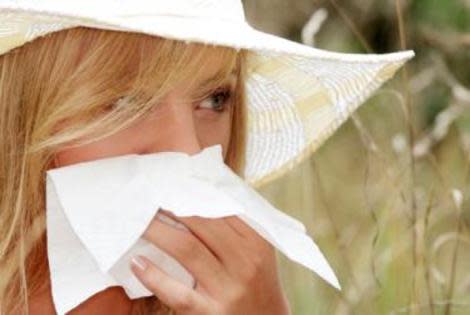Natural Help for Springtime Allergy Sufferers
By Danielle Miller, GalTime.com

Springtime got a head start on many of us this year and so did springtime allergies.
Those of us who suffer from allergies know how debilitating they can be, especially this time of year.
But taking a bunch of over-the-counter medication with a list of possible side effects to 'soothe' allergy aggravation seems almost as unappealing, at least to many of us.
Lori Reamer, registered dietitian and author of The Food That Fits: A Guide To Mastering Your Food Style suggests that there may be some steps allergy sufferers can take to alleviate allergy symptoms naturally.
Related: Experts Predict Worst Allergy Season in 10 Years
Eating local honey! (Little research but a harmless non-invasive attempt!)
"While there is little research on (this method) the idea is that small exposure to local allergens over time increases tolerance. This is the best article I have read on the subject."
Limiting/temporarily eliminating dairy and gluten
"Dairy and wheat (biggest source of gluten and sometimes this suggestion is known as dairy-free, gluten-free diet) are two of the most common food allergens. In part, we can often develop allergies/inflammation response to foods we eat in the greatest quantity and the US eats a lot of dairy and gluten.
Interestingly enough, rice is the most common food allergy in Japan to make that point even clearer. Eliminating dairy and gluten/wheat is often a key component to putting someone on a modified elimination diet to help decrease inflammation and try to improve their symptoms and overall health.
Springtime allergies are a type of inflammation, hence, this suggestion tries to decrease the inflammatory load from dairy and gluten/wheat. Most of us can tolerate small amounts of exposure, but when we experience greater inflammatory load it can trigger symptoms."
Related: Using Food as Medicine
Trying to avoid the top pesticide content fruits and vegetable in conventional form…Go organic when possible!
Pesticides increase the toxic load adding oxidative stress to the body. Increased oxidative stress contributes to inflammation.
Inflammation can add to the inflammation spring allergy sufferers already experience. The Environmental Working Group creates a Shopper's Guide to Pesticides in Produce summary once or twice a year based on pesticide data.
More from GalTime:
